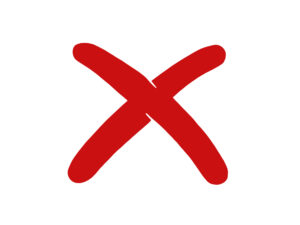How ethical and sustainable is Pretty Little Thing as a fashion brand?
The Good Shopping Guide gives Pretty Little Thing, an online fast fashion brand owned by Debenhams Group PLC, a low Ethical Rating. Unfortunately, this brand receives a Good Shopping Guide Ethical Score in our Ethical Fashion Retailers Ratings Table and has not yet met our minimum Ethical Benchmark. This brand has several areas to improve upon before it would likely qualify for our Ethical Accreditation.
In what areas does Pretty Little Thing perform poorly?
Pretty Little Thing scored poorly for the Environment, Animals, and People, partly because it is a fast fashion company and commits all kinds of ethical infractions.
Although several Debenhams Group brands (including Burton, Pretty Little Thing, and Dorothy Perkins) declare that solely organic cotton is used in the production of their products, this claim is unsupported by any independent certification or verification. Cotton is certified to make sure that it wasn’t grown in a way that would have harmed nearby farmers, ecosystems, wildlife, or communities because it is a crop that typically employs high levels of pesticides. Pretty Little Thing thus obtained a very low score for our Organic criteria.
Debenhams, the parent business has also come under fire from PETA for using wool in several of its goods. In response to these criticisms, Debenhams announced to the media that it would stop selling wool products in its online stores. This story also shows that Boohoo terminated this agreement in response to protests from sheep producers. Given that some of Pretty Little Thing’s products still occasionally include wool, vegans may wish to steer clear.
From there, Pretty Little Thing’s record with regard to violating animal welfare standards doesn’t get any better; parent firm Boohoo came under fire for passing off real fur, possibly from a rabbit, as artificial fur. This includes deceiving customers and murdering animals solely for sake of profit and fashion. This is just one more reason why those who are vegetarians, vegans, or who care about animal welfare may want to steer clear of this business until it adopts higher standards and begins pursuing our Ethical Accreditation! Because of these occurrences, we did not award Pretty Little Thing a high rating for its Animal Welfare Policy.
In what areas does Pretty Little Thing perform well?
Pretty Little Thing also has a complete and comprehensive Code of Conduct; with such paperwork, both investors and customers can hold businesses accountable and determine which companies are making plans for a sustainable future. Here is the Pretty Little Thing Code of Conduct.
How can the Pretty Little Thing brand improve its Ethical Rating?
In relation to Pretty Little Thing, The Good Shopping Guide’s score is given based on 15 ethical standards. Pretty Little Thing must address a number of issues before the company can receive our Ethical Accreditation, including its lax standards for animal welfare and treatment of workers in its supply chain.
If your fashion brand values ethics and sustainability, why not check out The Good Shopping Guide’s Ethical Accreditation? Increase customer and investor confidence and stand out from the greenwash.
Ethical performance in category
GSG score
GSG category benchmark
Ethical Rating
Environment
-
Environmental Report
Good
-
Organic
Poor
-
Better Cotton Initiative
Good
-
Fossil Fuels
Good
Animal
-
Animal Welfare
Poor
People
-
Armaments
Good
-
Code of Conduct
Good
-
Political Donations
Good
-
Ethical Trading Schemes
Poor
-
Human Rights
Poor
-
Human Rights+
Poor
Other
-
Ethical Accreditation
Poor
-
Other Criticisms
Poor
-
Other Criticisms+
Poor
= GSG Top Rating = GSG Middle Rating = GSG Bottom Rating
